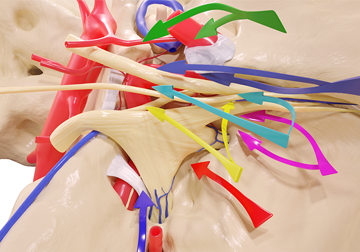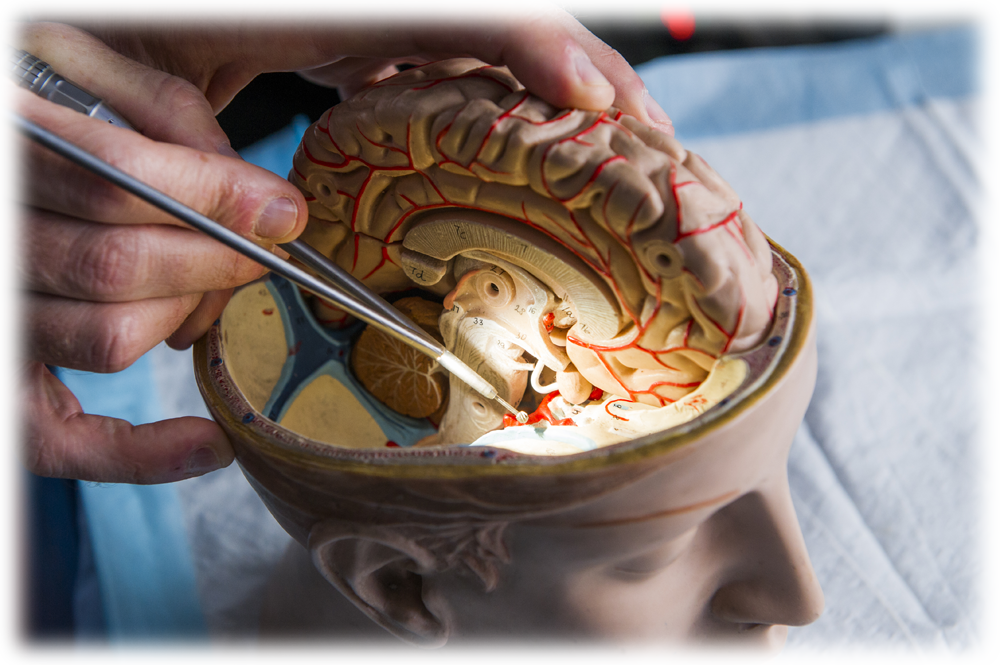Lesions of the skull base present a unique challenge to neurosurgeons. Special training is required to perform intricate surgery in the smallest recesses of the cranium. Most skull base neurosurgical approaches require dexterity with surgical instruments in highly restricted corridors containing vital neurovascular structures. This aspect of surgery demands proficiency not only with instruments and drills but also with the complex anatomy to be navigated. Understanding the extremely complex anatomical relationships between neural and vascular structures encased by bone is critical and requires significant practice. A cadaveric dissection laboratory is the ideal neurosurgical training environment.
Advanced skull base
neurosurgery training and
cutting-edge research


Our Mission
Surgical Training and Rehearsal
Anatomosurgical Education
Surgical Innovation




